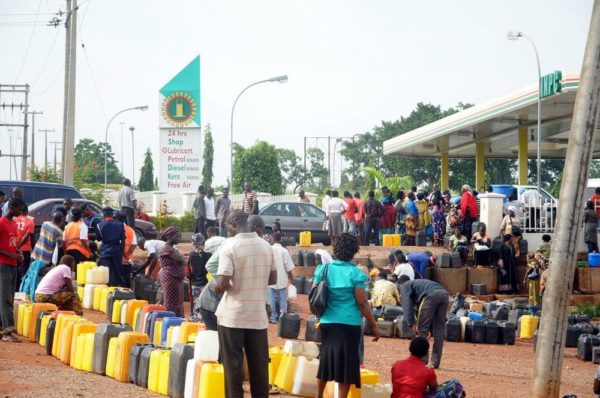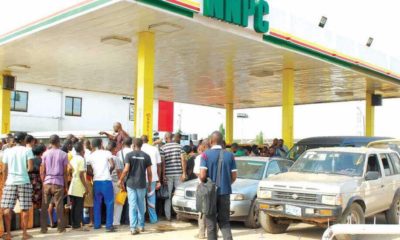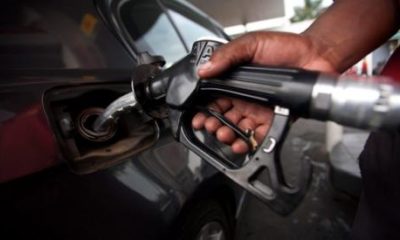News
Activist Sues AGF, Kachikwu, NNPC, IGP over Ban on Sales of Petrol in Jerrycans and Gallons
A lawyer and human rights activist, Malcom Omirhobo, on Thursday filed a suit at a Federal High Court in Lagos, challenging the ban of the sales of petrol in jerry cans.
The applicant is suing for himself and on behalf of other Nigerians.
The Attorney-General of the Federation (AGF), the Minister of State for Petroleum, the Nigerian National Petroleum Corporation (NNPC) and the Inspector-General (IG) of Police were joined as respondents in the suit.
The new suit numbered: FHC/L/CS/1024/2016 is brought pursuant to Order 2: Rule 1 of the Fundamental Rights Enforcement Procedure Rules, 2009.
Omirhobo is seeking a declaration that the directive by the second and third respondents to filling station owners not to sell petroleum products to Nigerians in jerrycans was discriminatory.
In an affidavit deposed to by the applicant, he averred that in January, he had approached several filling stations within his reach, with a jerry can to purchase fuel for his generators, but was denied sale.
The human rights activist said that all the filling station operators said that there was a directive from the respondents, not to sell fuel to Nigerians in jerry cans, gallons or kegs.
He, further, averred that this refusal led him as well as many other Nigerians to resort to buying fuel from the black market at exorbitant prices.
According to Omirhobo, the black market operators besiege filling stations with drums and gallons to purchase large volumes of fuel.
They, then, hoarded the product and, subsequently, sold it to the public at astronomical prices, he said.
Omirhobo said that the petrol attendants preferred to sell fuel to black marketers in order to maximise profits.
The legal practitioner also averred that since power supply was relatively poor, he and other Nigerians had been helplessly compelled to purchase the products from the black market at high prices.
He added that this condition had forced him and many Nigerians to live in very poor and excruciating conditions.
Omirhobo averred that as long as power supply was yet to improve in the country, Nigerians would continue to rely on generators and purchase fuel in kegs to power them.
He, therefore, sought a declaration that the directive of the respondents to filing station operators nationwide not to sell petrol to Nigerians in gallons, except those with vehicles, was inhumane and unlawful.
He also sought a declaration that the police had failed in its duty to put the black market under check and control.
He said that the police had also failed in ensuring that persons were not allowed to hoard fuel for the purpose of re-sale.
The applicant further sought an order, compelling the respondents to stop forthwith, the discriminatory and inhumane treatment meted on him and other Nigerians by the ban.
He also wanted an order directing the respondents to order the sale of petrol to every Nigerian in jerry cans for personal consumption and to facilitate their source of livelihood.
In addition, the applicant sought an order, directing the police to perform their statutory duty and ensure that the activities of black marketers were checked.
The court has not fixed any date for the hearing of the suit.



















